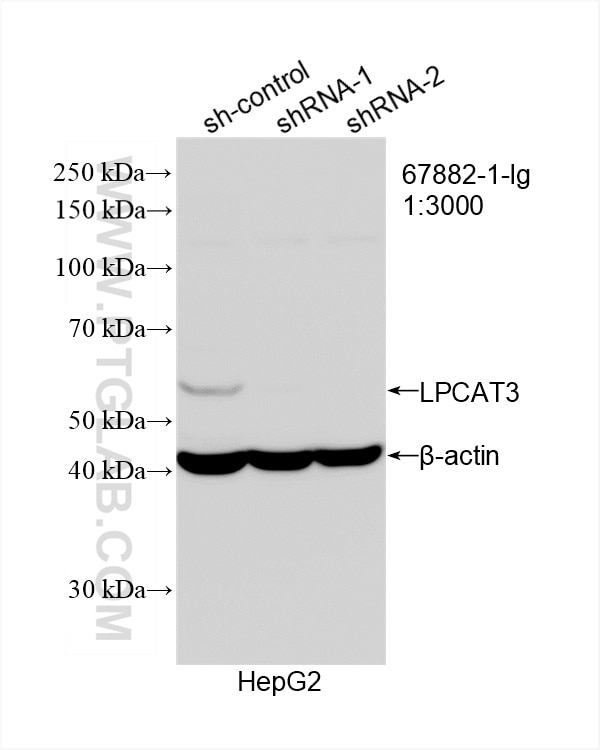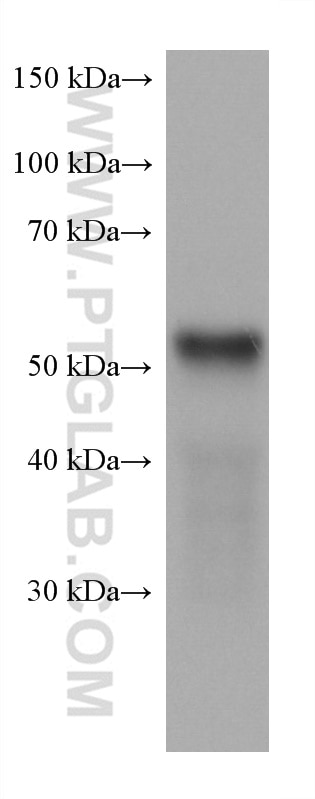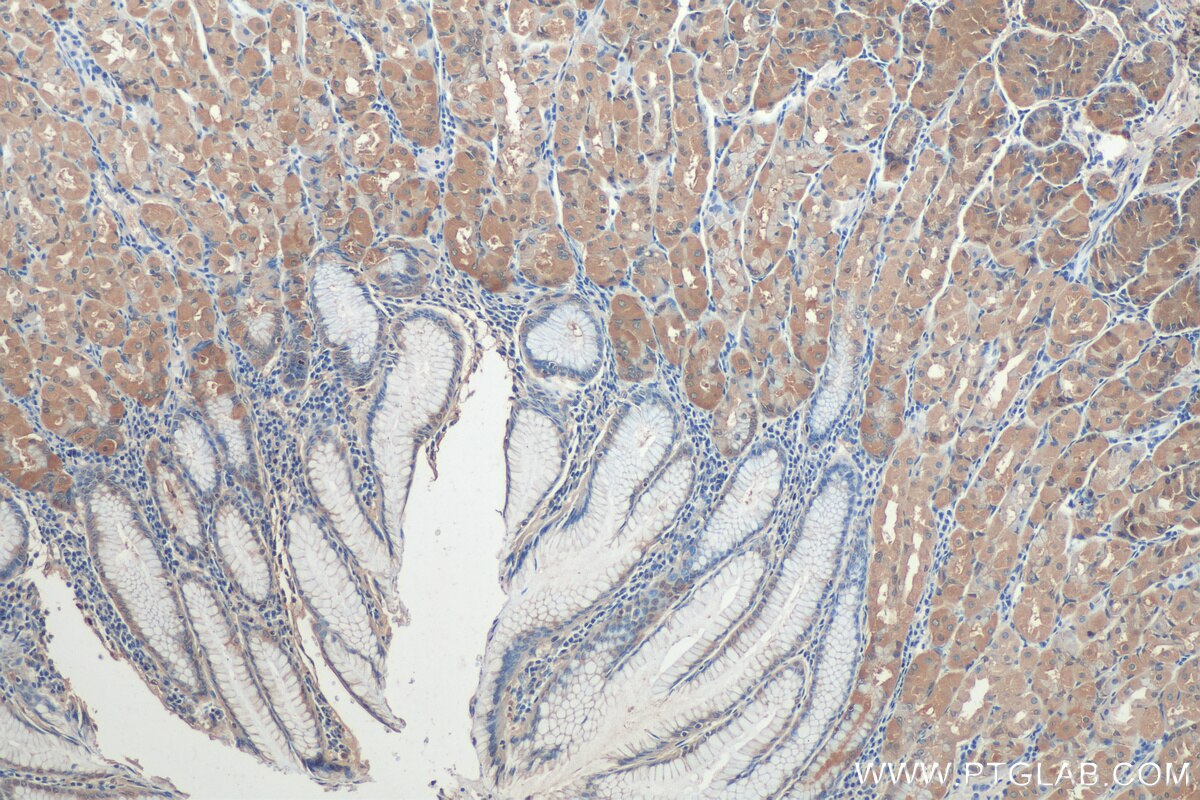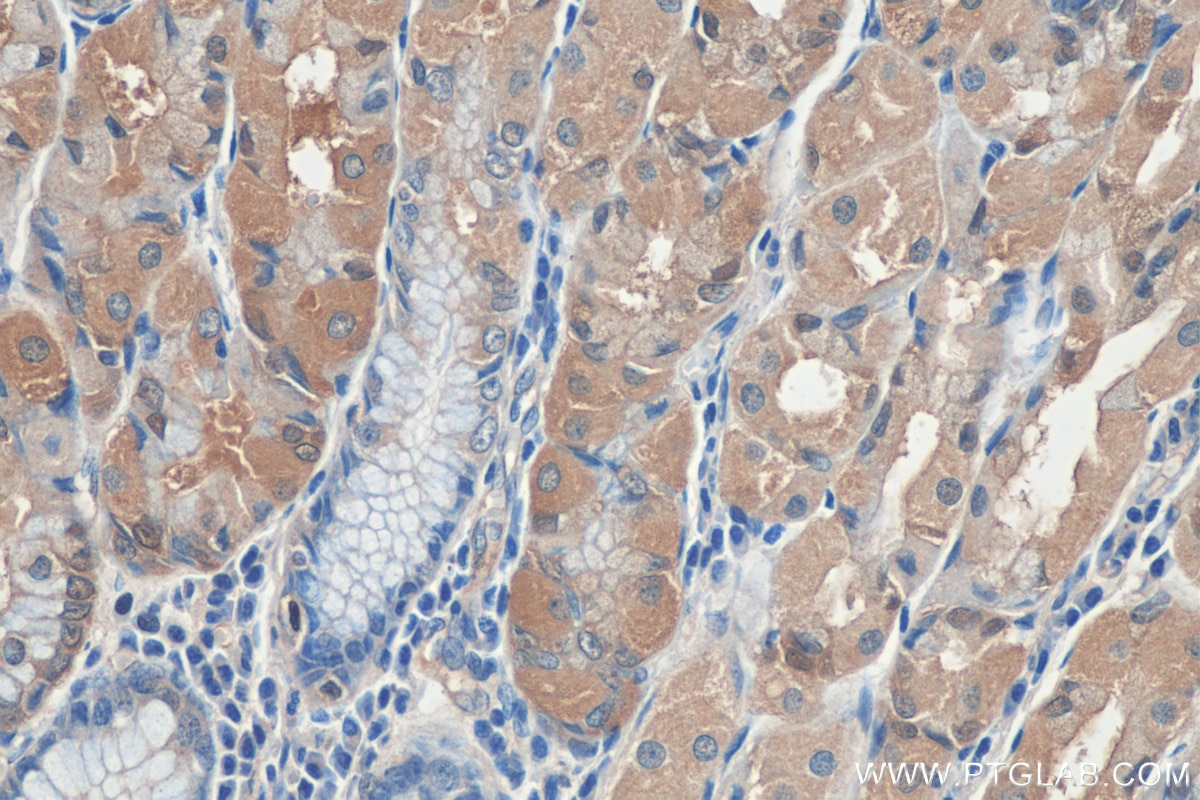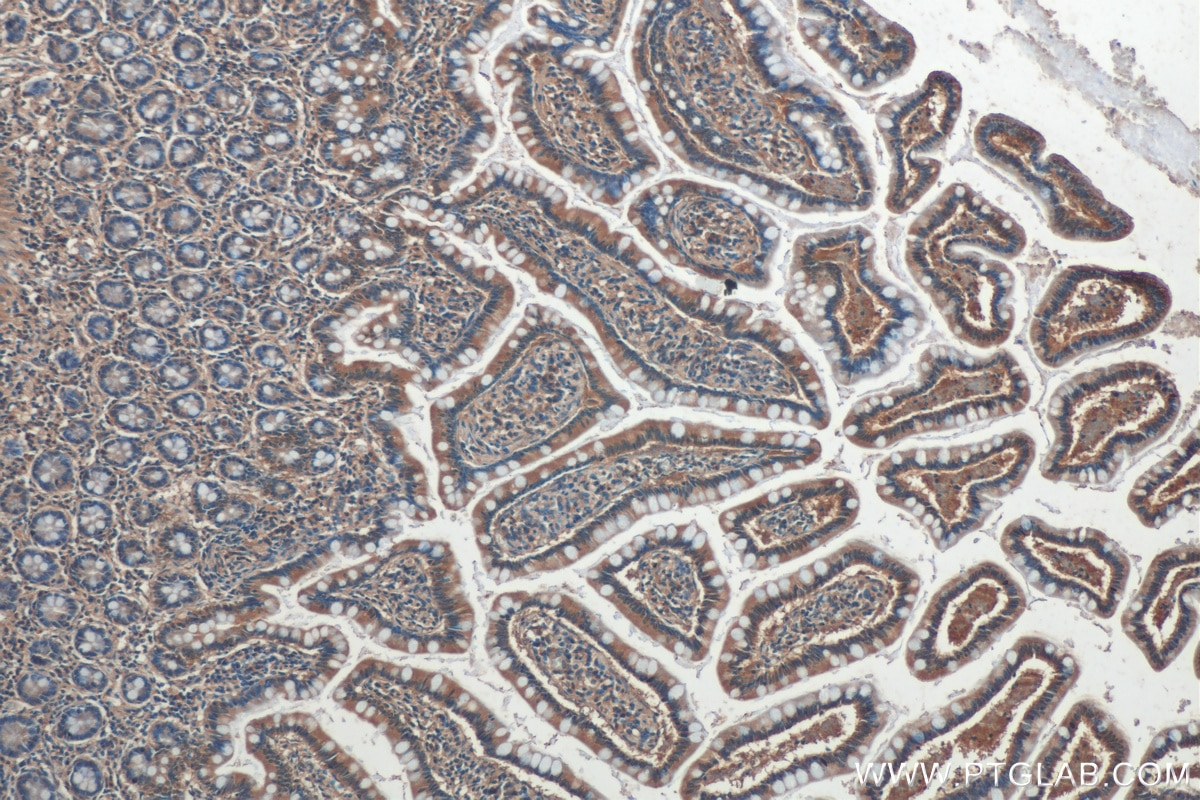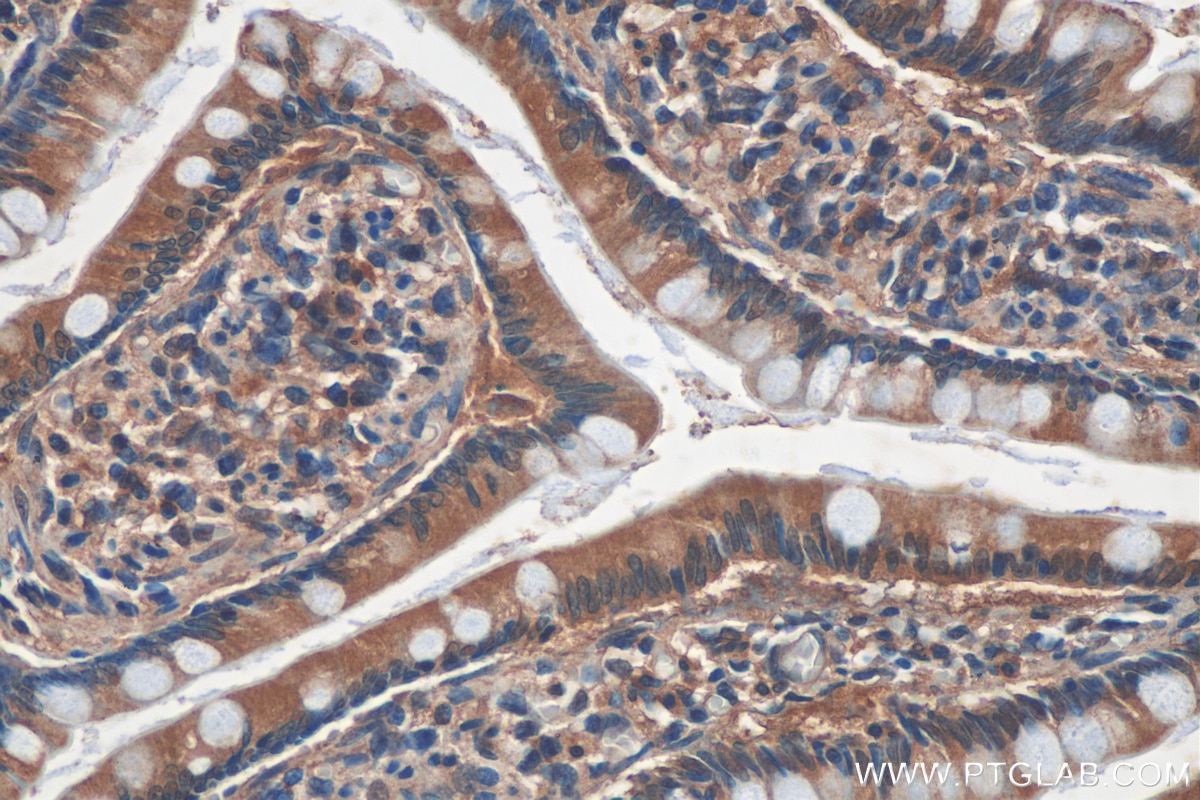- Phare
- Validé par KD/KO
Anticorps Monoclonal anti-LPCAT3
LPCAT3 Monoclonal Antibody for WB, IHC, ELISA
Hôte / Isotype
Mouse / IgG1
Réactivité testée
Humain, porc et plus (1)
Applications
WB, IHC, IF, ELISA
Conjugaison
Non conjugué
CloneNo.
1C1G3
N° de cat : 67882-1-Ig
Synonymes
Galerie de données de validation
Applications testées
| Résultats positifs en WB | tissu d'estomac de porc, cellules HepG2 |
| Résultats positifs en IHC | tissu d'estomac humain, tissu d'intestin grêle humain il est suggéré de démasquer l'antigène avec un tampon de TE buffer pH 9.0; (*) À défaut, 'le démasquage de l'antigène peut être 'effectué avec un tampon citrate pH 6,0. |
Dilution recommandée
| Application | Dilution |
|---|---|
| Western Blot (WB) | WB : 1:1000-1:6000 |
| Immunohistochimie (IHC) | IHC : 1:150-1:600 |
| It is recommended that this reagent should be titrated in each testing system to obtain optimal results. | |
| Sample-dependent, check data in validation data gallery | |
Applications publiées
| KD/KO | See 1 publications below |
| WB | See 27 publications below |
| IF | See 2 publications below |
Informations sur le produit
67882-1-Ig cible LPCAT3 dans les applications de WB, IHC, IF, ELISA et montre une réactivité avec des échantillons Humain, porc
| Réactivité | Humain, porc |
| Réactivité citée | rat, Humain |
| Hôte / Isotype | Mouse / IgG1 |
| Clonalité | Monoclonal |
| Type | Anticorps |
| Immunogène | LPCAT3 Protéine recombinante Ag6472 |
| Nom complet | lysophosphatidylcholine acyltransferase 3 |
| Masse moléculaire calculée | 56 kDa |
| Poids moléculaire observé | 56 kDa |
| Numéro d’acquisition GenBank | BC065194 |
| Symbole du gène | LPCAT3 |
| Identification du gène (NCBI) | 10162 |
| Conjugaison | Non conjugué |
| Forme | Liquide |
| Méthode de purification | Purification par protéine G |
| Tampon de stockage | PBS with 0.02% sodium azide and 50% glycerol |
| Conditions de stockage | Stocker à -20°C. Stable pendant un an après l'expédition. L'aliquotage n'est pas nécessaire pour le stockage à -20oC Les 20ul contiennent 0,1% de BSA. |
Informations générales
Lysophosphatidylcholine acyltransferases (LPCATs) are among the lysophopholipid acyltransferases (LPLATs) that play an important role in lipid metabolism and homeostasis by regulating the abundance of different phosphatidylcholine (PC) species. Lysophosphatidylcholine acyltransferase 3 (LPCAT3) is a member of the LPCAT family that primarily regulates the levels of arachidonic PC species. LPCAT3 is abundantly expressed in the testes, kidneys, and metabolic tissues, including the liver, intestine, and adipose tissues. LPCAT3 is involved in the occurrence and development of atherosclerosis, intestinal tumors, and nonalcoholic steatohepatitis (NASH)(PMID: 35711841).
Protocole
| Product Specific Protocols | |
|---|---|
| WB protocol for LPCAT3 antibody 67882-1-Ig | Download protocol |
| IHC protocol for LPCAT3 antibody 67882-1-Ig | Download protocol |
| Standard Protocols | |
|---|---|
| Click here to view our Standard Protocols |
Publications
| Species | Application | Title |
|---|---|---|
J Immunother Cancer Mefloquine enhances the efficacy of anti-PD-1 immunotherapy via IFN-γ-STAT1-IRF1-LPCAT3-induced ferroptosis in tumors
| ||
Free Radic Biol Med Role of ferroptosis mediated by abnormal membrane structure in DEHP-induced reproductive injury | ||
Phytomedicine Rosmarinic acid liposomes suppress ferroptosis in ischemic brain via inhibition of TfR1 in BMECs | ||
Phytomedicine MaiJiTong granule attenuates atherosclerosis by reducing ferroptosis via activating STAT6-mediated inhibition of DMT1 and SOCS1/p53 pathways in LDLR-/- mice | ||
J Cell Biol The deubiquitinase ZRANB1 is an E3 ubiquitin ligase for SLC7A11 and regulates ferroptotic resistance | ||
Inflammation Investigation of Metabolic and Inflammatory Disorder in the Aging FGF21 Knockout Mouse |
